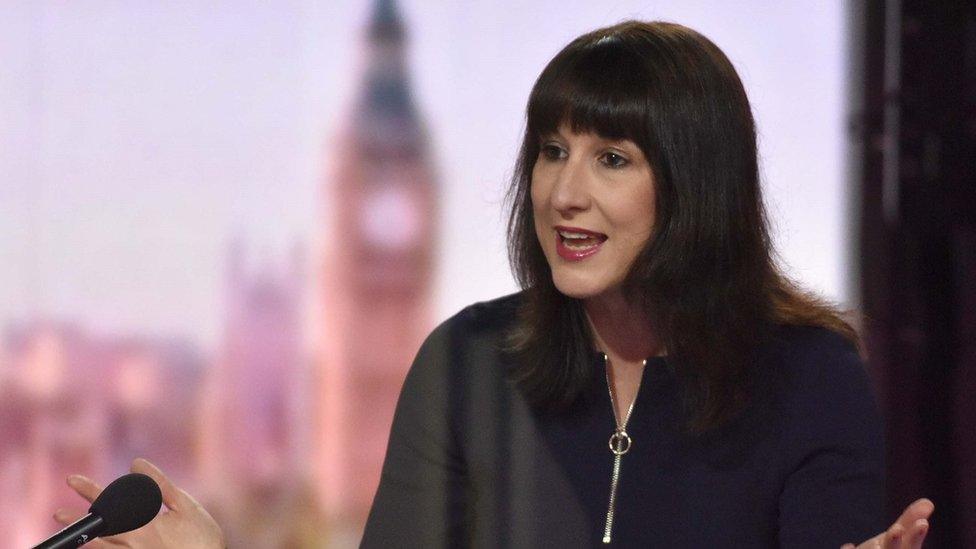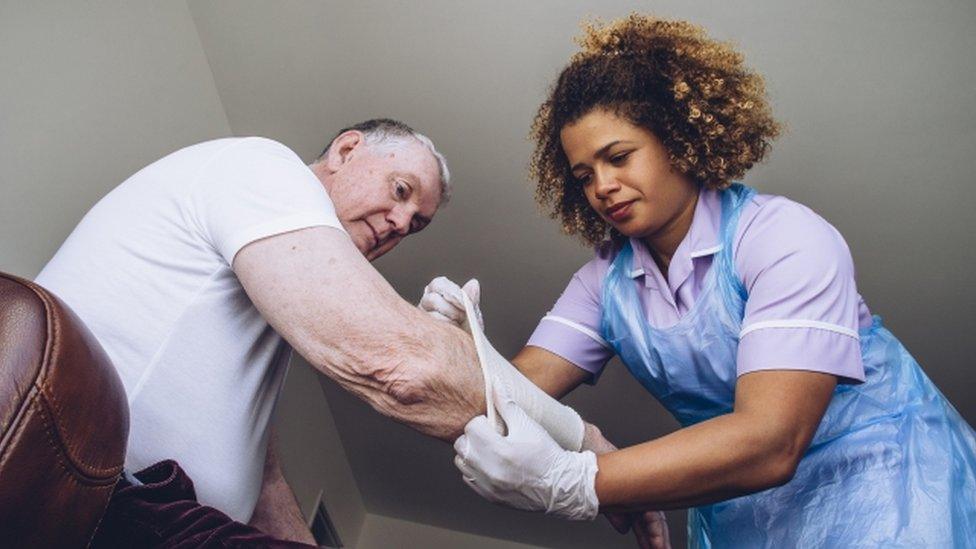Labour pledges crackdown on private equity
- Published
- comments

Labour has pledged to close a tax "loophole" which allows private equity fund managers to pay a reduced rate of tax on their earnings.
The party promised to introduce the measure if it won the next election, saying it could raise £440m a year.
Shadow chancellor, Rachel Reeves, described the so-called "loophole" as an "absurd" tax break for the wealthy.
In response, the Treasury said its tax system was designed to ensure that the richest pay their fair share.
Ahead of Labour's autumn conference next weekend, Ms Reeves is coming under pressure to start setting out details of its polices on tax and spending.
She says a future Labour government would extend the tax on the earnings of private equity fund managers known as "carried interest".
Private equity funds are essentially investment companies that raise funds from private sources, instead of through the stock market.
They buy what they consider to be underperforming companies with the aim of turning them around and selling them on for profit.
Supporters of private equity buy-outs say they can create jobs quickly and improve company performance, but critics say they make drastic cuts to jobs and strip company assets.
Private equity executives pay taxes on their basic pay and bonuses, but a large part of their income comes from something called carried interest, which is taxed at a lower capital gains rate rather than an income rate.
Labour's plans would mean all earnings would be treated as income, and therefore raise more money in tax.
Ms Reeves said the plan would fix "the unfairness in the tax system".
Economists suggest the policy could raise £440m a year from around 2,000 individuals.


This is a taster of the relatively new shadow chancellor's speech to the Labour Party conference next week.
She's under pressure to reveal more details about spending and taxation.
She says this £440m tax increase shows Labour would reduce unfairness in the system, and incentivise a certain type of investor to behave differently.
And that it's better to tax a few thousand wealthy fund managers than whack nearly all workers with a rise to national insurance, as envisaged by the government's new Health and Social Care Levy.
That new tax will raise £12bn annually, though.
And at the last election Jeremy Corbyn pledged to equalise capital gains tax and income tax on everything, raising an estimated £9bn.
So Rachel Reeves risks looking like more of a lukewarm revenue raiser than her opponents and her predecessors.
But let's see what else she has up her sleeve in seven day's time.

Ms Reeves said: "Instead of hitting working people and businesses with tax rises, we should be spreading the burden and creating a fairer system.
"It's not right that working people and ordinary businesses have been hit by a jobs tax, while private equity fund managers don't have to pay a penny more on their income, and are in fact handed a tax break by this government as they asset strip some of our most valued businesses", she added.
The British Private Equity and Venture Capital Association said the UK already had one of the world's highest tax rates on this type of income.
Its director general, Michael Moore, said: "Private capital is driving the Covid recovery in all parts of the UK, with 90% of investment going into small- and medium-sized businesses.
"It supports over a million jobs and is helping the UK to become more competitive and to meet its climate objectives through substantial investments in tech and other sectors."
He said it was essential to provide an "internationally competitive investment climate" and that any proposals for change "need to take careful account" of the fact that the UK has "amongst the highest rates anywhere in the world" on so-called "carried interest".
A Treasury spokesperson said: "Our tax system is designed to ensure that the richest pay their fair share on their wealth and assets, and we already charge income tax on private equity managers' carried interest where the investments are short-term.
"Capital gains tax is due on longer-term holdings because we also want to support long-term investment, which will support businesses as we recover from the pandemic and build back better."
Related topics
- Published21 September 2021

- Published11 October 2021

- Published10 September 2021

- Published7 September 2021

- Published8 September 2021
